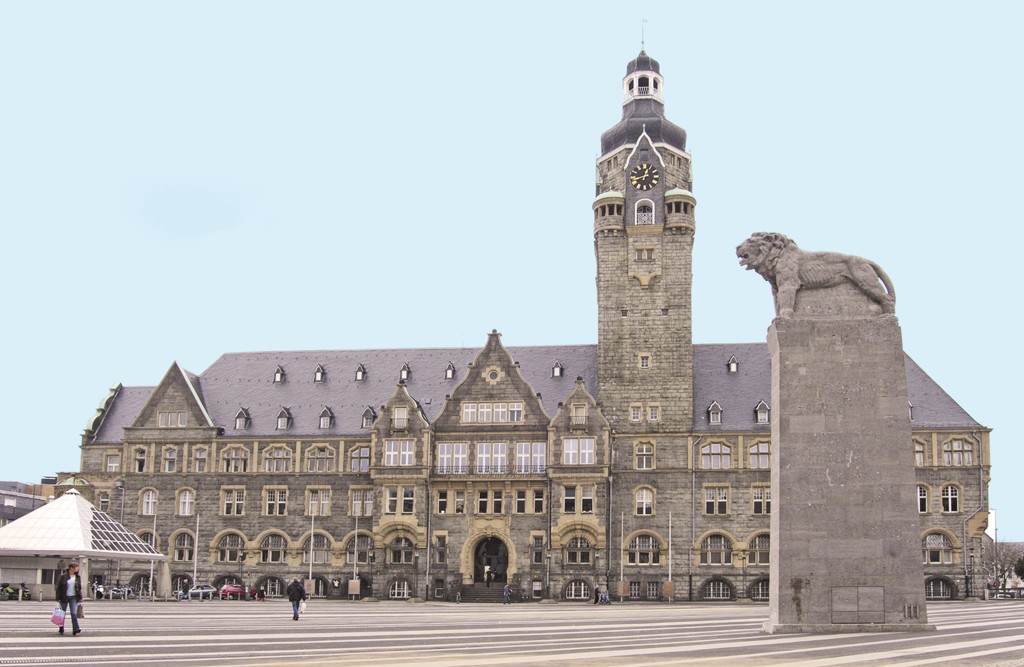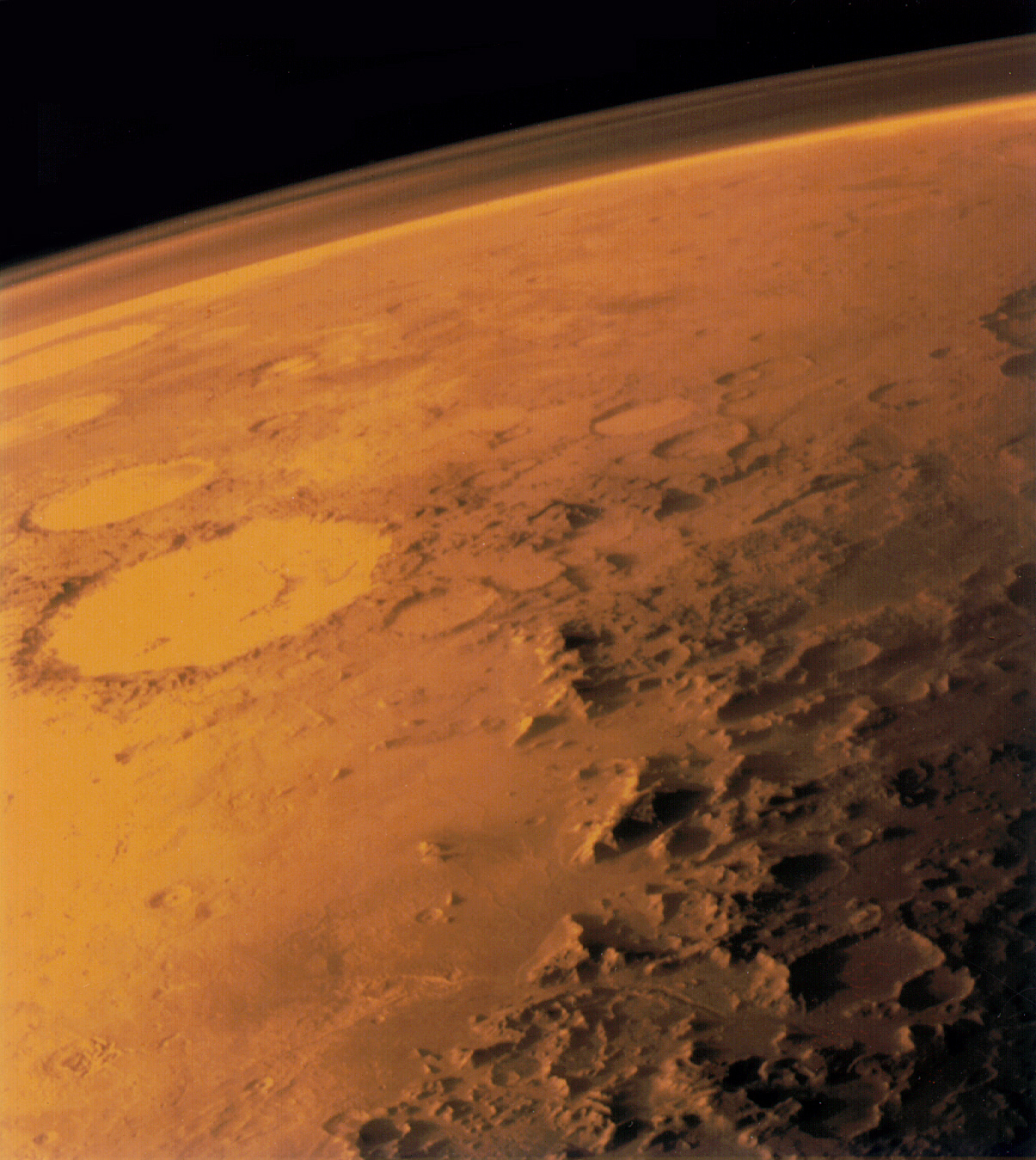|
Wolfgang Seiler
Wolfgang Seiler (born 22 January 1940 in Remscheid) is a German biogeochemist and climatologist. Seiler was Director of the Institute of Meteorology and Atmospheric Environmental Research (IMK-IFU) of the Karlsruhe Institute of Technology, and is a pioneer in basic research in biogeochemistry. Development Seiler studied meteorology from 1961 to 1969 at the University of Mainz and graduated with a diploma. In 1970 he received his doctorate in meteorology (Dr. rer. nat.). Ten years later he completed his Habilitation at the ETH Zurich in atmospheric chemistry. From 1980 to 1982 he was lecturer at the ETH Zurich. From 1980 to 1989 he was a visiting professor at the Georgia Institute of Technology, Atlanta, USA, and from 1989 to 1990 a Research Professor of Environmental Sciences at the University of Virginia, Charlottesville, USA. Research Seiler worked as a research assistant at the Institute of Meteorology, University of Mainz (1969-1985) and was head of the research group "trace ... [...More Info...] [...Related Items...] OR: [Wikipedia] [Google] [Baidu] |
Remscheid
Remscheid () is a List of cities and towns in Germany, city in North Rhine-Westphalia, Germany. It is, after Wuppertal and Solingen, the third-largest municipality in Bergisches Land, being located on the northern edge of the region, on the south side of the Ruhr area. Remscheid had around 109,000 inhabitants in 2015. At the end of 2019 it had 113,703 inhabitants. Geography Remscheid comprises four boroughs, ''Alt-Remscheid'', ''Remscheid-Süd'', ''Lennep'', and Lüttringhausen. Its highest point is the Brodtberg (378 m). History Remscheid was founded in the 12th century, but remained a small village until the 19th century. Early spellings for the city included ''Remissgeid'' (1217), ''Rymscheyd'' (1351), ''Reymscheyd'' (1487) and ''Rembscheid'' (1639). The economic growth of the entire Rhine-Ruhr region led to an increase of the population of Remscheid. Mechanical engineering and toolmaking were the main industries practised within the town. This is carried on today with the H ... [...More Info...] [...Related Items...] OR: [Wikipedia] [Google] [Baidu] |
Fraunhofer Society
The Fraunhofer Society (german: Fraunhofer-Gesellschaft zur Förderung der angewandten Forschung e.V., lit=Fraunhofer Society for the Advancement of Applied Research) is a German research organization with 76institutes spread throughout Germany, each focusing on different fields of applied science (as opposed to the Max Planck Society, which works primarily on basic science). With some 29,000 employees, mainly scientists and engineers, and with an annual research budget of about €2.8billion, it is the biggest organization for applied research and development services in Europe. Some basic funding for the Fraunhofer Society is provided by the state (the German public, through the federal government together with the states or ''Länder'', "owns" the Fraunhofer Society), but more than 70% of the funding is earned through contract work, either for government-sponsored projects or from industry. It is named after Joseph von Fraunhofer who, as a scientist, an engineer, and an entr ... [...More Info...] [...Related Items...] OR: [Wikipedia] [Google] [Baidu] |
Sustainability Advocates
Specific definitions of sustainability are difficult to agree on and have varied in the literature and over time. The concept of sustainability can be used to guide decisions at the global, national, and individual levels (e.g. sustainable living). Sustainability is commonly described as having three dimensions (also called pillars): environmental, economic, and social. Many publications state that the environmental dimension (also called "planetary integrity" or "ecological integrity") is the most important, and, in everyday usage, "sustainability" is often focused on countering major environmental problems, such as climate change, loss of biodiversity, loss of ecosystem services, land degradation, and air and water pollution. Humanity is now exceeding several "planetary boundaries". A closely related concept is that of sustainable development, and the terms are often used synonymously. However, UNESCO distinguishes the two thus: "''Sustainability'' is often thought of as a lon ... [...More Info...] [...Related Items...] OR: [Wikipedia] [Google] [Baidu] |
German Climatologists
German(s) may refer to: * Germany (of or related to) ** Germania (historical use) * Germans, citizens of Germany, people of German ancestry, or native speakers of the German language ** For citizens of Germany, see also German nationality law **Germanic peoples (Roman times) * German language **any of the Germanic languages * German cuisine, traditional foods of Germany People * German (given name) * German (surname) * Germán, a Spanish name Places * German (parish), Isle of Man * German, Albania, or Gërmej * German, Bulgaria * German, Iran * German, North Macedonia * German, New York, U.S. * Agios Germanos, Greece Other uses * German (mythology), a South Slavic mythological being * Germans (band), a Canadian rock band * "German" (song), a 2019 song by No Money Enterprise * ''The German'', a 2008 short film * "The Germans", an episode of ''Fawlty Towers'' * ''The German'', a nickname for Congolese rebel André Kisase Ngandu See also * Germanic (other) ... [...More Info...] [...Related Items...] OR: [Wikipedia] [Google] [Baidu] |
Atmospheric Chemists
An atmosphere () is a layer of gas or layers of gases that envelop a planet, and is held in place by the gravity of the planetary body. A planet retains an atmosphere when the gravity is great and the temperature of the atmosphere is low. A stellar atmosphere is the outer region of a star, which includes the layers above the opaque photosphere; stars of low temperature might have outer atmospheres containing compound molecules. The atmosphere of Earth is composed of nitrogen (78%), oxygen (21%), argon (0.9%), carbon dioxide (0.04%) and trace gases. Most organisms use oxygen for respiration; lightning and bacteria perform nitrogen fixation to produce ammonia that is used to make nucleotides and amino acids; plants, algae, and cyanobacteria use carbon dioxide for photosynthesis. The layered composition of the atmosphere minimises the harmful effects of sunlight, ultraviolet radiation, the solar wind, and cosmic rays to protect organisms from genetic damage. The current compositi ... [...More Info...] [...Related Items...] OR: [Wikipedia] [Google] [Baidu] |
Atmospheric Scientists
Atmospheric science is the study of the Earth's atmosphere and its various inner-working physical processes. Meteorology includes atmospheric chemistry and atmospheric physics with a major focus on weather forecasting. Climatology is the study of atmospheric changes (both long and short-term) that define average climates and their change over time, due to both natural and anthropogenic climate variability. Aeronomy is the study of the upper layers of the atmosphere, where dissociation and ionization are important. Atmospheric science has been extended to the field of planetary science and the study of the atmospheres of the planets and natural satellites of the Solar System. Experimental instruments used in atmospheric science include satellites, rocketsondes, radiosondes, weather balloons, radars, and lasers. The term aerology (from Greek ἀήρ, ''aēr'', "air"; and -λογία, '' -logia'') is sometimes used as an alternative term for the study of Earth's atmosphere; in othe ... [...More Info...] [...Related Items...] OR: [Wikipedia] [Google] [Baidu] |
German Meteorologists
German(s) may refer to: * Germany (of or related to) **Germania (historical use) * Germans, citizens of Germany, people of German ancestry, or native speakers of the German language ** For citizens of Germany, see also German nationality law **Germanic peoples (Roman times) * German language **any of the Germanic languages * German cuisine, traditional foods of Germany People * German (given name) * German (surname) * Germán, a Spanish name Places * German (parish), Isle of Man * German, Albania, or Gërmej * German, Bulgaria * German, Iran * German, North Macedonia * German, New York, U.S. * Agios Germanos, Greece Other uses * German (mythology), a South Slavic mythological being * Germans (band), a Canadian rock band * "German" (song), a 2019 song by No Money Enterprise * ''The German'', a 2008 short film * "The Germans", an episode of ''Fawlty Towers'' * ''The German'', a nickname for Congolese rebel André Kisase Ngandu See also * Germanic (other) * Germa ... [...More Info...] [...Related Items...] OR: [Wikipedia] [Google] [Baidu] |
Max Planck Society People
Max or MAX may refer to: Animals * Max (dog) (1983–2013), at one time purported to be the world's oldest living dog * Max (English Springer Spaniel), the first pet dog to win the PDSA Order of Merit (animal equivalent of OBE) * Max (gorilla) (1971–2004), a western lowland gorilla at the Johannesburg Zoo who was shot by a criminal in 1997 Brands and enterprises * Australian Max Beer * Max Hamburgers, a fast-food corporation * MAX Index, a Hungarian domestic government bond index * Max Fashion, an Indian clothing brand Computing * MAX (operating system), a Spanish-language Linux version * Max (software), a music programming language * Commodore MAX Machine * Multimedia Acceleration eXtensions, extensions for HP PA-RISC Films * ''Max'' (1994 film), a Canadian film by Charles Wilkinson * ''Max'' (2002 film), a film about Adolf Hitler * ''Max'' (2015 film), an American war drama film Games * '' Dancing Stage Max'', a 2005 game in the ''Dance Dance Revolution'' series * ''DD ... [...More Info...] [...Related Items...] OR: [Wikipedia] [Google] [Baidu] |
1940 Births
Year 194 ( CXCIV) was a common year starting on Tuesday (link will display the full calendar) of the Julian calendar. At the time, it was known as the Year of the Consulship of Septimius and Septimius (or, less frequently, year 947 ''Ab urbe condita''). The denomination 194 for this year has been used since the early medieval period, when the Anno Domini calendar era became the prevalent method in Europe for naming years. Events By place Roman Empire * Emperor Septimius Severus and Decimus Clodius Septimius Albinus Caesar become Roman Consuls. * Battle of Issus: Septimius Severus marches with his army (12 legions) to Cilicia, and defeats Pescennius Niger, Roman governor of Syria. Pescennius retreats to Antioch, and is executed by Severus' troops. * Septimius Severus besieges Byzantium (194–196); the city walls suffer extensive damage. Asia * Battle of Yan Province: Warlords Cao Cao and Lü Bu fight for control over Yan Province; the battle lasts for over 100 ... [...More Info...] [...Related Items...] OR: [Wikipedia] [Google] [Baidu] |
Foundation For The Rights Of Future Generations
Foundation for the Rights of Future Generations (FRFG), also known as Stiftung für die Rechte zukünftiger Generationen (SRzG), is a German think tank and activist group focused on intergenerational justice and sustainability. Established in 1997, the foundation is based in Stuttgart, Germany. The FRFG has been called the most important extra-parliamentary think tank on the topic of intergenerational justice in Germany, and has members from around the world. The organization rose to national prominence while campaigning to include a provision for sustainability and the protection of future generations into the German constitution. It has also campaigned for age-independent voting rights. FRFG publishes the English-language journal Intergenerational Justice Review' in collaboration with the University of Tübingen and thIntergenerational Foundation. FRFG is associated with the United Nations Economic and Social Council (ECOSOC) and the Department of Public Information (DPI). B ... [...More Info...] [...Related Items...] OR: [Wikipedia] [Google] [Baidu] |
Garmisch-Partenkirchen
Garmisch-Partenkirchen (; Bavarian: ''Garmasch-Partakurch''), nicknamed Ga-Pa, is an Alpine ski town in Bavaria, southern Germany. It is the seat of government of the district of Garmisch-Partenkirchen (abbreviated ''GAP''), in the Oberbayern region, which borders Austria. Nearby is Germany's highest mountain, Zugspitze, at above sea level. The town is known as the site of the 1936 Winter Olympic Games, the first to include alpine skiing, and hosts a variety of winter sports competitions. History Garmisch (in the west) and Partenkirchen (in the east) were separate towns for many centuries, and still maintain quite separate identities. Partenkirchen originated as the Roman town of ''Partanum'' on the trade route from Venice to Augsburg and is first mentioned in the year A.D. 15. Its main street, Ludwigsstrasse, follows the original Roman road. Garmisch was first mentioned some 800 years later as ''Germaneskau'' ("German District"), suggesting that at some po ... [...More Info...] [...Related Items...] OR: [Wikipedia] [Google] [Baidu] |



